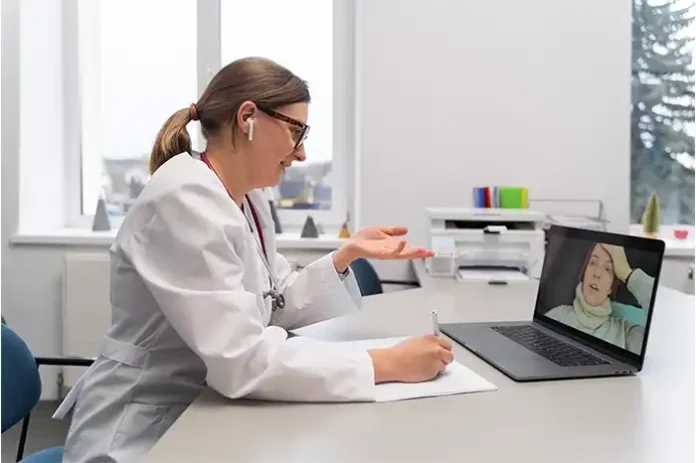The healthcare world is changing so fast, sometimes I feel like I blink, and there’s something new to learn. One role that’s becoming more and more crucial is that of the Virtual Medical Receptionists (VMR). It’s not a flashy job, and most people don’t even notice it, but I’ve realized how vital we are to keeping things running smoothly. You know, telemedicine is booming, and with it, the need for skilled receptionists who can handle the heat is climbing fast.
As telemedicine and remote patient management gain traction, the demand for skilled Virtual Medical Receptionists continues to rise. This article delves into the essential skills that every practical Virtual Medical Receptionist should possess, highlighting their importance in enhancing productivity, improving patient experiences, and ensuring compliance with healthcare regulations.
1. Clinical Knowledge and Competence
First off, clinical knowledge is a must. I don’t mean you need to be a doctor or anything like that, but you have to know your way around medical terminology. If a patient calls asking about their lab results or a procedure, you can’t just say, “Oh, I don’t know.” It’s on you to have some idea of what they’re talking about. Trust me, when you know how to read a chart or understand a doctor’s notes, it makes your job a hundred times easier.
2. Strong Communication Skills

This job is all about communication. If you can’t clearly explain things to patients or staff, you’re in trouble. And honestly it’s not just about talking—it’s about how well you listen. I’ve had patients on the phone who were upset, confused, or just plain scared. Sometimes, all they needed was for me to really hear them. A little empathy can go a long way.
3. Organizational Skills
Organization is something I had to get better at—fast. There’s so much happening at once. You’ve got appointments to schedule, records to update, and a dozen other tasks pulling you in different directions. It’s overwhelming if you’re not careful. I started relying on tools like EHR systems to keep me on track, and let me tell you, it’s a lifesaver.
4. Technical Proficiency
When you’re a VMR, technology is your best friend—or your worst enemy, depending on the day. You’ve got to be comfortable with all kinds of software, from scheduling apps to telehealth platforms. And when things go wrong—and they will—it’s on you to fix it. I’ve had to troubleshoot so many little glitches, and honestly, you just learn as you go.
5. Customer Service Orientation
People don’t think of healthcare as a customer service job, but it really is. As a Virtual Medical Receptionist, you’re often the first point of contact for patients. That first impression matters. I’ve learned to stay patient, even when someone’s frustrated or taking their bad day out on me. A kind word or a little reassurance can completely change the tone of a conversation.
6. Attention to Detail

Details can make or break you. Forget to update a record or book the wrong time for an appointment, and you’ve got a mess on your hands. I’m not perfect, but I’ve trained myself to triple-check everything. It’s a habit that saves me from so many headaches.
7. Problem-Solving Skills
Not every day goes according to plan. Sometimes patients cancel at the last minute, or a doctor changes their entire schedule, and you’ve got to figure it out. I’ve learned to stay calm, think on my feet, and just deal with whatever comes up. Problem-solving is a big part of this job, whether anyone tells you that or not.
8. Adaptability and Flexibility
In healthcare, nothing stays the same for long. Protocols shift, new software gets rolled out, and you have to adapt quickly. I used to resist change, but now I’ve realized it’s just part of the job. If you can stay flexible, you’ll be fine.
9. Understanding of Health Regulations

This one’s a bit boring, but super important. If you don’t understand healthcare regulations, like HIPAA, you’re asking for trouble. I’ve had to learn the hard way that there’s no room for mistakes when it comes to patient privacy. It’s not just about following the rules—it’s about protecting the people you’re helping.
10. Empathy and Compassion
This is the part of the job I take most seriously. Patients are often scared or overwhelmed, and sometimes they just need someone to be kind to them. I’ve had conversations where I could tell someone felt better just because I was calm and compassionate. It’s not in the job description, but it should be.
11. Time Management Skills

Deadlines are real, and there’s always more to do than hours in the day. Learning how to prioritize and work smart (not just hard) is a lifesaver. Techniques like time blocking or just tackling the hardest task first can keep you ahead of the game.
12. Cultural Competence
I’ve worked with patients from all kinds of backgrounds, and I’ve realized how important it is to be respectful and open-minded. Making people feel understood and welcome isn’t just polite—it’s essential.
13. Continual Learning and Professional Development

One thing I’ve figured out is that you can’t stop growing in this job. The healthcare world moves too fast. I’ve taken workshops, read up on new tools, and stayed curious. It’s the only way to keep up and stay good at what you do.
Conclusion
Becoming a practical Virtual Medical Receptionist requires a unique blend of skills and attributes. From clinical knowledge and excellent communication abilities to strong organizational skills and a customer service orientation, each skill is crucial in enhancing patient care and operational efficiency. As the healthcare landscape continues to evolve, the reliance on skilled Virtual Medical Receptionists will only increase, underscoring the importance of developing these essential skills to succeed in this rewarding field. Empowered with the right skills, VMRs contribute to the smooth functioning of healthcare practices and significantly improve the overall patient experience.


